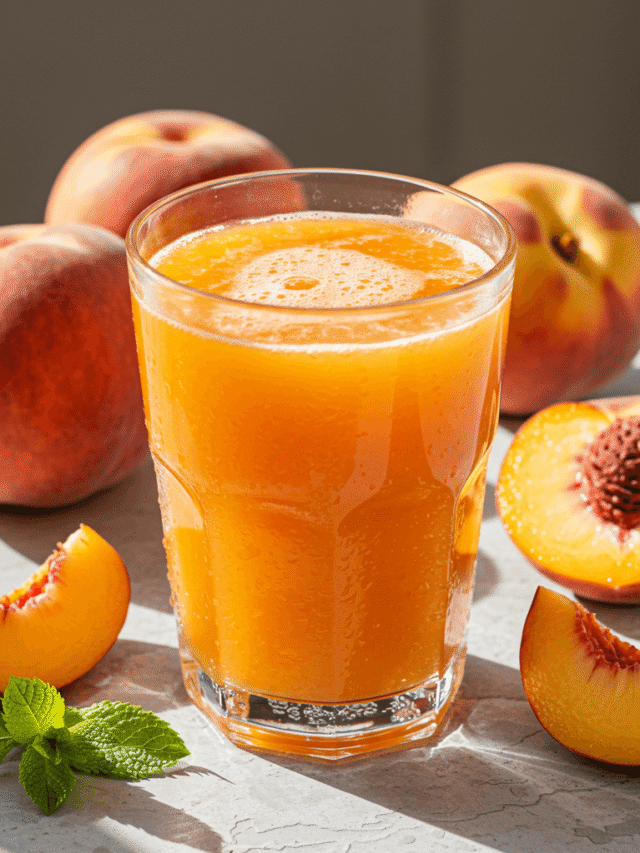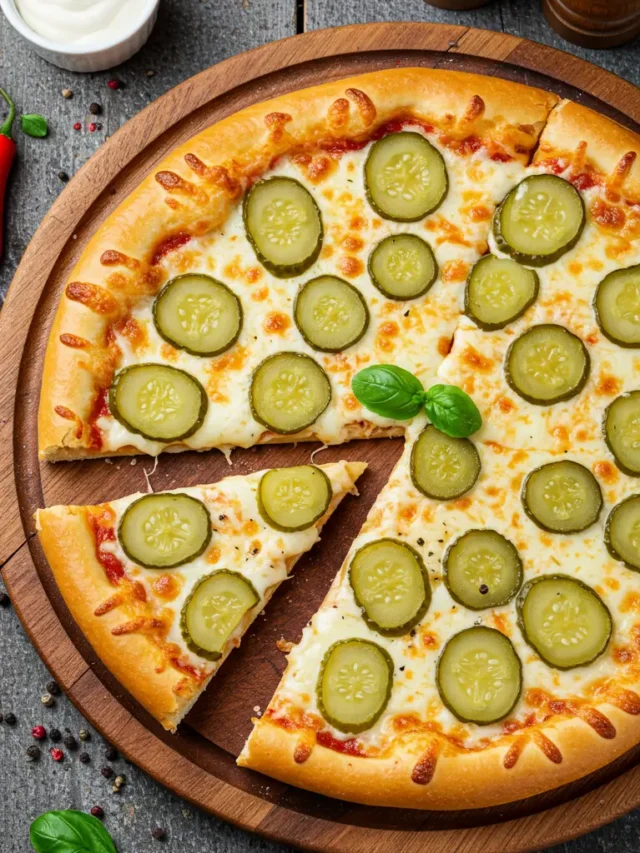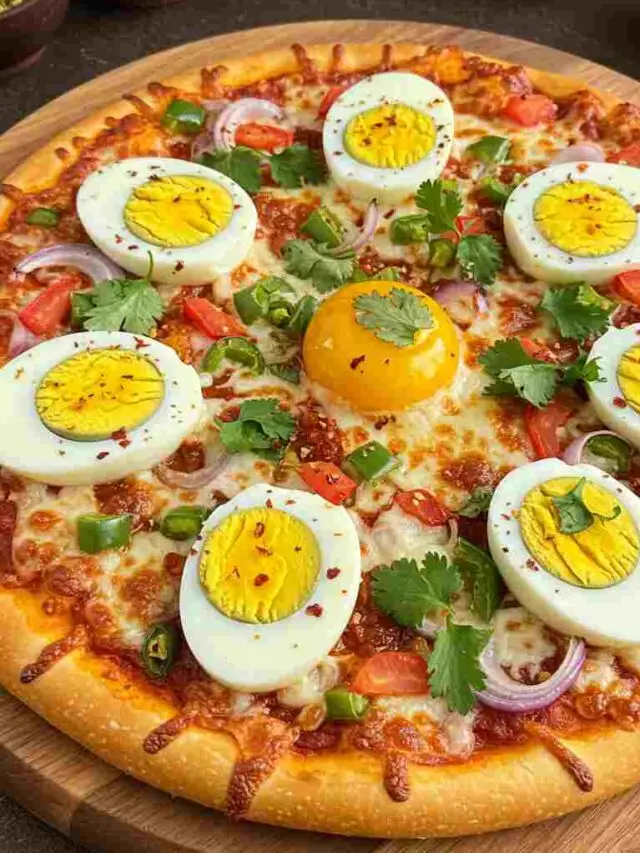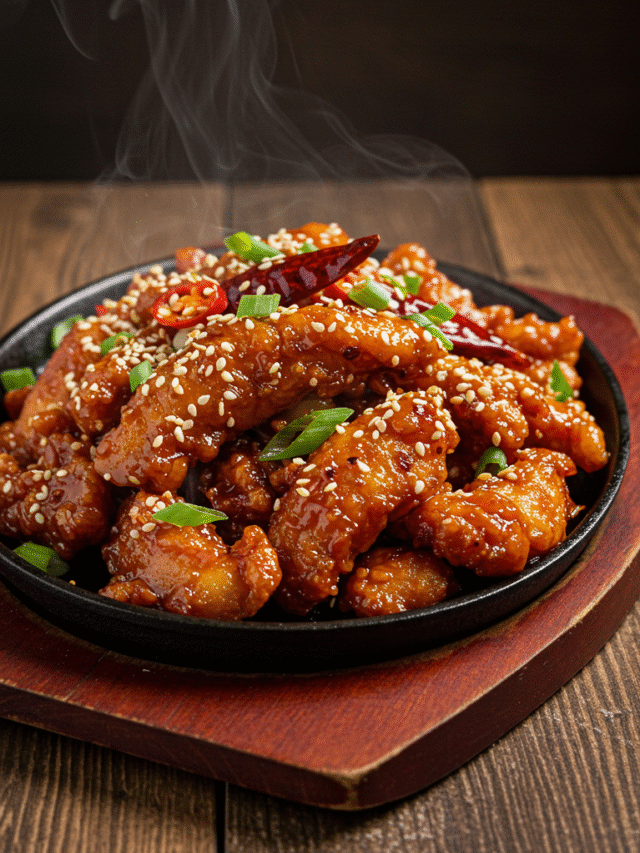Introduction
Pizza has become a global favorite food that brings people together across cultures. For Muslims worldwide, finding halal pizza options can sometimes be challenging. The good news? More restaurants now offer halal-certified pizza to meet the growing demand.
This guide will help you understand what makes pizza halal, where to find it, and how to make delicious halal pizza at home. The global halal food market continues to grow rapidly, reaching nearly $2 trillion according to recent studies. Pizza makes up a significant portion of this market as more Muslims want convenient food choices that follow their dietary guidelines.
When we talk about halal food requirements, we mean much more than just avoiding pork. The comprehensive certification process includes how animals are slaughtered, how ingredients are sourced, and how food is prepared. Understanding these details helps Muslims make informed choices about the food they eat.
What Makes a Pizza Halal?
Definition of Halal Food Requirements
For pizza to qualify as halal, it must follow specific Islamic dietary laws from the Quran. These laws set clear rules about what foods Muslims can eat. The main requirements include:
- No pork or pork by-products
- Meat from animals slaughtered according to Islamic law (dhabiha)
- No alcohol or intoxicants
- No blood products
- Separate preparation from non-halal foods
Muslims follow these rules to practice their faith through mindful eating. The word “halal” itself means “permitted” in Arabic, while foods that don’t meet these standards are called “haram” (forbidden).
Ingredients Analysis
Halal Meat Requirements
The meat on halal pizza must come from animals slaughtered the Islamic way. This process, called dhabiha, requires:
- The animal must be alive and healthy when slaughtered
- A Muslim must perform the slaughter
- The person must say Allah’s name during slaughter
- All blood must drain from the animal
Popular halal meat toppings include chicken, beef, lamb, and turkey. Traditional pork pepperoni gets replaced with beef or chicken pepperoni that follows these guidelines.
Many pizza lovers find these alternatives just as tasty as conventional options, often with unique flavor profiles that add something special to the pizza experience.
Cheese Considerations
Cheese creates a unique challenge for halal pizza because many cheeses use rennet, an enzyme often taken from animal stomachs. For cheese to be halal:
- It must use plant-based or microbial rennet instead of animal rennet
- If using animal rennet, it must come from a halal-slaughtered animal
- It must contain no wine or alcohol (sometimes found in specialty cheeses)
Common halal cheeses include certain types of mozzarella, cheddar, and feta that meet these rules. Many pizza shops now offer halal-certified cheese options to serve Muslim customers.
Sauce and Topping Ingredients
Pizza sauce and toppings must also follow halal standards:
- Tomato sauce must contain no wine or alcohol additives
- All flavor enhancers must come from halal sources
- Vegetables are generally halal, but pre-prepared items need checking
- Some flavor compounds like vanilla extract might contain alcohol and need halal alternatives
Cross-contamination Concerns
A critical part of halal pizza production involves preventing contact with non-halal ingredients:
- Separate tools, cutting boards, and prep areas
- Dedicated ovens or thoroughly cleaned shared ovens
- Separate storage for halal ingredients
- Staff training on halal requirements
Many restaurants set specific times for halal pizza preparation or have completely separate kitchens to address these concerns properly.
Certification Processes
Halal certification gives customers assurance about a restaurant’s compliance with Islamic dietary laws:
- Official halal certification bodies inspect restaurants and ingredient sources
- Regular checks ensure ongoing compliance
- Certified places display official halal certificates
- Some countries have government agencies that regulate halal certification
This certification process helps Muslim consumers make confident choices when dining out. Look for official certification logos displayed prominently in restaurants and on packaging.
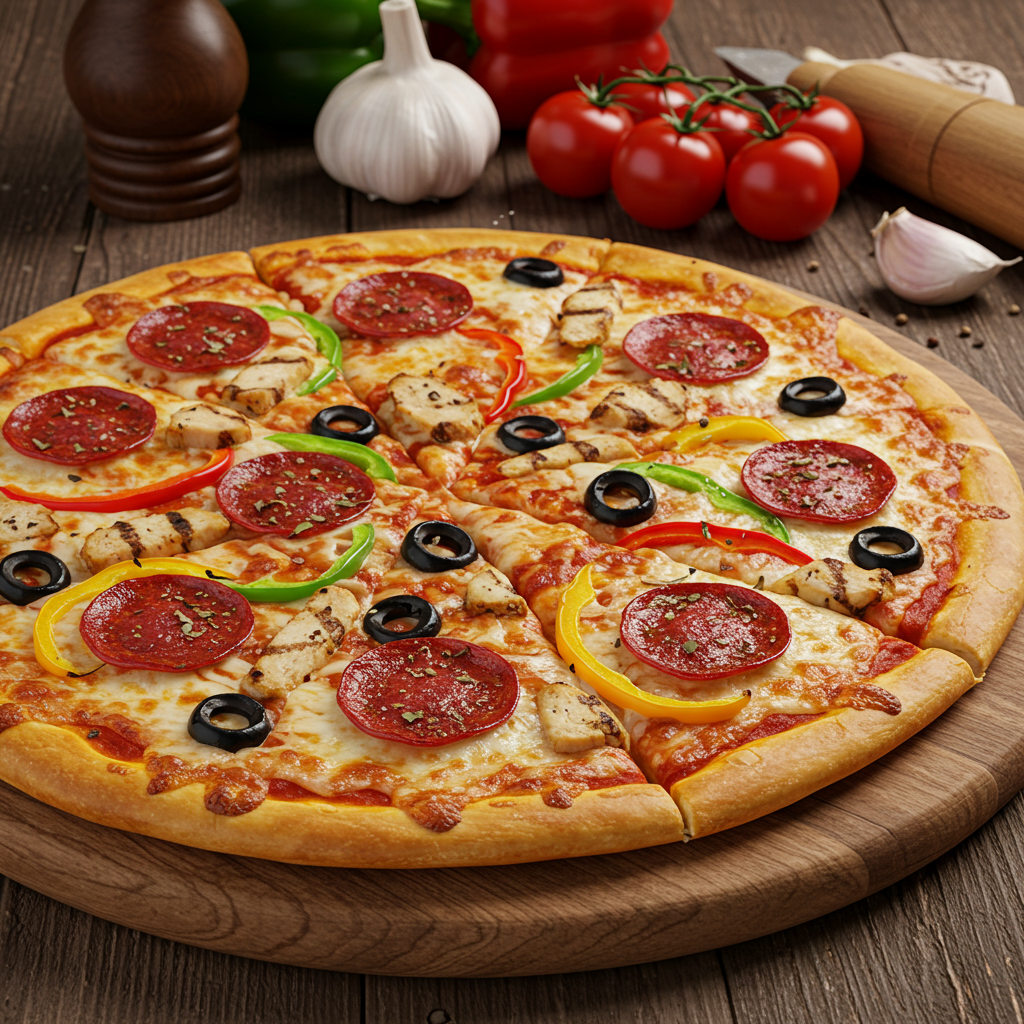
Popular Halal Pizza Varieties
Traditional Halal Pizza Options
Many classic pizza styles now come in halal versions while keeping their original flavors:
- Margherita: Simple combination of tomato sauce, halal mozzarella, and fresh basil
- Halal Pepperoni: Uses beef or chicken pepperoni instead of pork
- Supreme: Made with halal meats and fresh vegetables
- Meat Lovers: Features various halal meat options like beef, chicken, and turkey bacon
These traditional options allow Muslim pizza fans to enjoy familiar flavors without breaking dietary rules. The taste difference between regular and halal pizza often goes unnoticed by most people, showing how far halal food production has come.
Regional Variations
Different regions have created their own unique halal pizza styles that combine local flavors with pizza basics:
- Middle Eastern Halal Pizza: Includes spices like zaatar and sumac with minced lamb
- South Asian Halal Pizza: Features tikka chicken and tandoori flavors
- Turkish Pide: An oval-shaped pizza with distinctive Turkish seasonings
- Malaysian Variations: Include local ingredients like rendang beef and tropical fruits
These regional styles show how pizza adapts across cultures while still following halal guidelines. The Journal of Islamic Marketing has documented how these cultural fusions help grow the halal food market worldwide.
Innovative Halal Pizza Creations
Modern halal pizzerias keep creating new and exciting combinations:
- Shawarma Pizza: Topped with marinated shawarma meat and tahini sauce
- Butter Chicken Pizza: Uses Indian butter chicken sauce instead of tomato sauce
- Kebab Pizza: Popular in Scandinavian countries with döner kebab meat
- Dessert Pizza: Sweet options with halal-certified chocolate and fruits
These creative options show how halal food innovation continues to grow. Many non-Muslim customers also enjoy these unique flavor combinations, helping break down cultural barriers through food.
Where to Find Halal Pizza
Major Pizza Chains Offering Halal Options
Domino’s Halal Status
Domino’s halal status changes by country and even by individual store:
- In the UK, over 100 Domino’s locations offer halal chicken
- In Singapore and Malaysia, most Domino’s stores have halal certification
- In the US and Canada, Domino’s generally doesn’t offer halal options
- Individual stores may have separate prep areas for halal orders
Always check with your local Domino’s about their current halal status, as practices can change over time.
Pizza Hut Halal Offerings
Pizza Hut takes different approaches to halal by region:
- In Muslim-majority countries, Pizza Hut usually offers fully halal menus
- In countries like the UK, select stores offer halal meat options
- The company displays halal certification in participating locations
- Some locations offer halal options but might not have separate prep areas
Local Chain Comparisons
Beyond the big international chains, local pizza businesses often better meet halal needs:
- Papa John’s offers halal options in specific markets
- Little Caesars provides halal pizzas in select locations
- Regional chains like Perfect Pizza (UK) often have more complete halal menus
Specialized Halal Pizzerias
Dedicated halal pizzerias have grown in recent years, offering fully compliant menus:
- Pizza786 (UK): A fully halal chain specializing in fusion flavors
- Halal Guys Pizza (US): Expanded from street food to include pizza
- Royal Paan & Pizza (Canada): Offers South Asian-influenced halal pizzas
- Muslim Pizza (Australia): Specializes in traditional Italian styles with halal ingredients
These specialized shops often give better assurance of halal compliance through dedicated facilities. You can find reviews and locations of these restaurants on sites like HalalTrip that focus on Muslim-friendly dining options.
Halal Pizza in Different Countries
Morocco’s Halal Pizza Scene
Morocco, with its mostly Muslim population, offers many halal pizza options:
- Most local pizzerias use halal ingredients as standard practice
- International chains in Morocco adapt to offer halal options
- Quick restaurants in Morocco generally maintain halal certification
- Moroccan pizza often includes local spices and cooking styles
This makes Morocco a great destination for Muslim travelers who want to enjoy pizza without worrying about halal compliance.
Other Notable Regions
- United Arab Emirates: Dubai and Abu Dhabi have extensive halal pizza choices
- Malaysia: Strict halal standards make most pizza options reliably halal
- Turkey: Traditional pide exists alongside Western-style pizza, all halal
- United Kingdom: Areas with large Muslim populations have abundant halal pizza options
Finding halal pizza has become much easier in many parts of the world thanks to growing demand and better awareness of Muslim dietary needs. Many restaurants now proudly advertise their halal pizza recipes and preparation methods on their websites and menus.
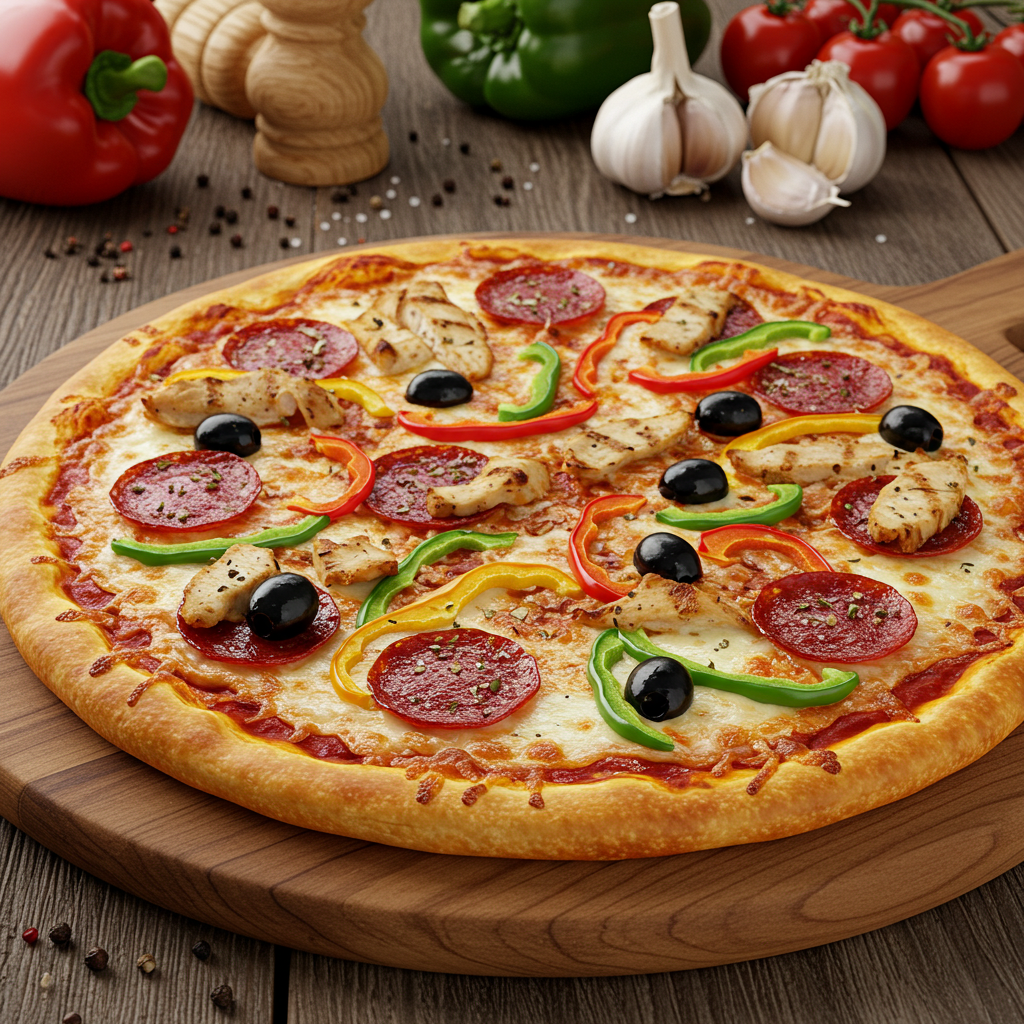
Making Halal Pizza at Home
Essential Ingredients
You can easily make halal pizza at home with these basic ingredients:
- Flour: Regular all-purpose or bread flour (generally halal)
- Yeast: Most commercial yeasts are halal (avoid brewer’s yeast)
- Halal-certified cheese: Look for vegetarian or halal mozzarella labels
- Halal meat: Buy from certified halal butchers or properly labeled products
- Tomato sauce: Make homemade or buy commercial types without wine
- Olive oil: Pure olive oil (halal without special certification)
- Herbs and spices: Fresh or dried herbs (generally halal)
Creating halal pizza at home gives you control over every ingredient. This way, you know exactly what goes into your food and can adjust flavors to match your family’s taste preferences.
Step-by-Step Halal Pizza Dough Recipe
Try this simple halal pizza dough recipe as the base for your homemade creation:
- Mix 4 cups all-purpose flour, 1 teaspoon salt, and 1 tablespoon sugar in a large bowl
- Combine 1 packet (2¼ teaspoons) active dry yeast with 1½ cups warm water and 2 tablespoons olive oil in a separate container
- Pour the liquid mix into the flour and stir until dough forms
- Knead for 8-10 minutes until smooth and elastic
- Place in an oiled bowl, cover, and let rise for 1-2 hours until doubled
- Punch down, divide into 2-3 portions for multiple pizzas
- Roll or stretch into your desired shape and thickness
- Top with halal ingredients and bake at 475°F (245°C) for 12-15 minutes
This dough recipe works great for thin or thick crust styles. You can also make it ahead of time and store it in the refrigerator for up to 3 days.
Selecting Appropriate Toppings
When choosing toppings for your homemade halal pizza:
- Buy halal-certified meats from trusted suppliers
- Check cheese labels for halal certification or vegetarian labeling
- Prepare vegetables on clean surfaces to avoid cross-contamination
- Use halal-certified specialty items like beef pepperoni
- Create your own flavor combinations using allowed ingredients
Popular halal pizza topping combinations include:
- Middle Eastern: Beef shawarma, onions, and tahini drizzle
- Tandoori: Tandoori chicken, bell peppers, and red onions
- Turkish: Ground beef, tomatoes, and special Turkish spices
- Mediterranean: Olive oil base, halal feta cheese, spinach, and olives
Cooking Techniques
Get restaurant-quality results with these halal pizza cooking methods:
- Heat your oven to the highest setting (ideally 500°F/260°C or higher)
- Use a pizza stone or steel for crispy crusts (heat it for at least 45 minutes)
- Try a pizza peel for easy transfer to the hot stone
- For thicker crusts, bake the dough for 3-4 minutes before adding toppings
- Watch cooking times based on thickness and toppings (usually 8-12 minutes)
- Try grilling or using a cast-iron pan for different results
The right cooking technique makes a huge difference in your final pizza quality. High heat creates that perfect balance between crispy crust and melty cheese.
Tips for Authentic Flavor
Make your halal pizza taste like it came from a professional pizzeria:
- Keep dough cold in the refrigerator for 24-72 hours for better flavor
- Use high-quality olive oil in the dough and as a final drizzle
- Try high-protein flour (12-14% protein) for better structure
- Spread sauce in a thin, even layer to prevent soggy centers
- Add fresh herbs after baking for brightest flavor
- Mix different halal cheeses for unique taste profiles
- Finish with a light sprinkle of sea salt to bring out all flavors
Small details like these turn a basic homemade pizza into something special. Your family and friends will notice the difference in both taste and texture.
Nutritional Aspects of Halal Pizza
Caloric Content
Halal pizza has similar nutrition to regular pizza, with some potential benefits:
- An average slice of halal cheese pizza contains about 250-300 calories
- Meat toppings add roughly 30-50 calories per slice
- Vegetable toppings add minimal calories (5-15 per slice)
- Specialty pizzas with multiple toppings can reach 400+ calories per slice
- Thick crusts have 20-30% more calories than thin crusts
Knowing these numbers helps you enjoy halal pizza as part of a balanced diet. You can make smart choices about portion sizes and toppings based on your nutritional needs.
Nutritional Benefits
Halal pizza can offer several health advantages as part of a balanced diet:
- Provides complex carbohydrates from the crust
- Contains protein from cheese and meat toppings
- Delivers calcium from dairy components
- Offers lycopene (an antioxidant) from tomato sauce
- Vegetable toppings add vitamins, minerals, and fiber
- Halal meat often avoids certain preservatives found in conventional meats
The quality of ingredients matters most for the nutritional value of your pizza. Using fresh, whole ingredients improves the overall health profile.
Healthier Halal Pizza Alternatives
Try these modifications for a more nutritious halal pizza:
- Whole wheat crust (adds fiber and nutrients)
- Thin crust (cuts calories)
- Light cheese or partial replacement with nutritional yeast
- More vegetables with less meat
- Olive oil white pizzas instead of heavy cheese options
- Cauliflower or chickpea flour crusts for lower-carb options
These simple changes can make pizza a healthier choice while still meeting halal requirements. Many families find these alternatives just as tasty as traditional pizza.
Balancing Indulgence and Nutrition
Enjoy halal pizza as part of a balanced diet by:
- Eating reasonable portions (1-2 slices with a side salad)
- Choosing smart toppings (lean proteins, vegetables)
- Adding nutritious sides (garden salad, vegetable soup)
- Treating pizza as an occasional food rather than an everyday meal
- Making homemade versions with controlled ingredients
With these strategies, you can enjoy delicious halal pizza without compromising your health goals. Pizza can fit into most eating plans when you make thoughtful choices.
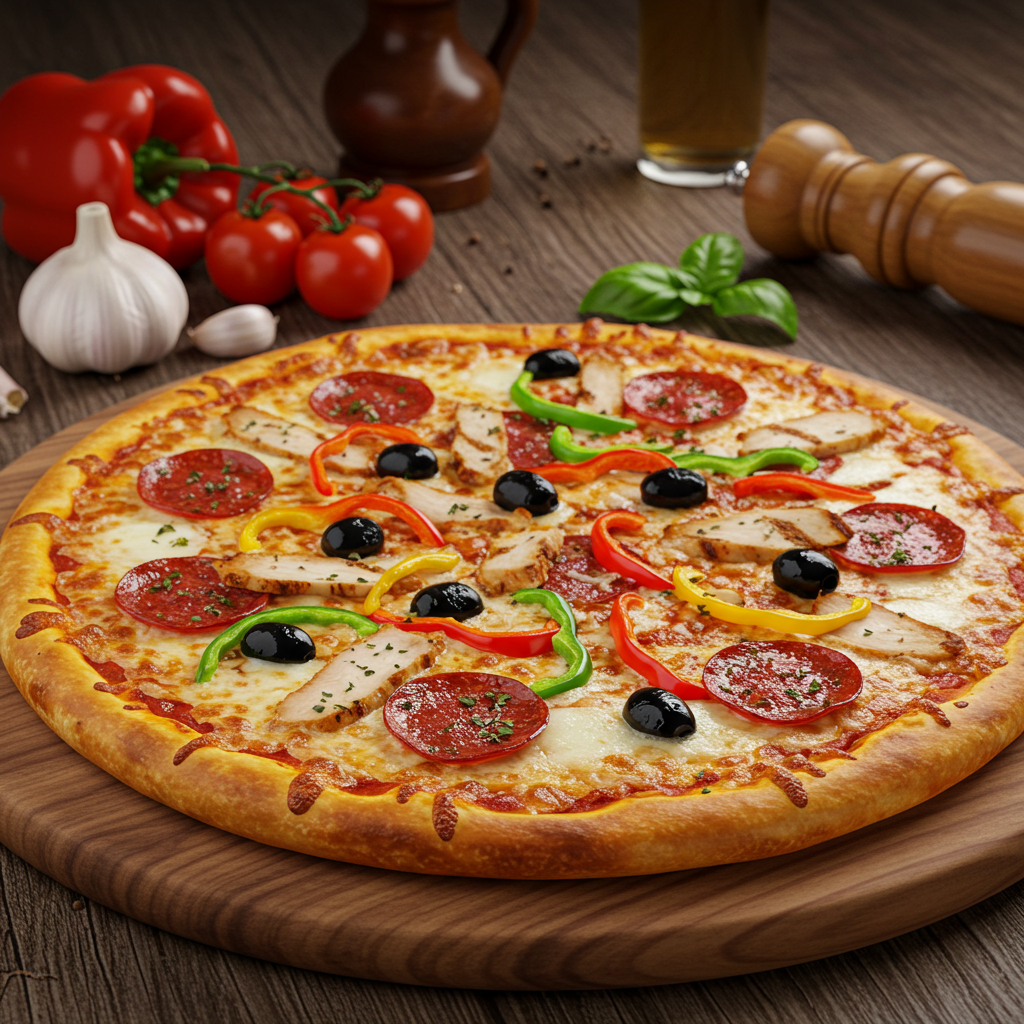
Cultural Significance of Halal Pizza
Pizza as a Bridge Between Cultures
Halal pizza shows how food brings different cultures together:
- Combines Italian culinary tradition with Islamic dietary practices
- Makes a popular global food accessible to Muslim communities
- Shows how immigrant communities adapt favorite foods to religious needs
- Creates common ground between different cultural groups
When restaurants offer halal pizza options, they send a message of inclusion. This simple food choice helps build community understanding and respect for different dietary practices.
Growth of Halal Pizza in Non-Muslim Regions
The rise of halal pizza availability reflects bigger social changes:
- More religious diversity in Western countries
- Growing awareness of different dietary needs
- Rising demand for food transparency
- Businesses recognizing the value of serving Muslim customers
Market research shows halal pizza sales growing 15% each year in non-Muslim countries. This growth rate beats the overall pizza industry’s growth of 5-7%. Smart business owners see this trend as an opportunity to serve new customers.
Community Gathering Aspects
Pizza’s shareable nature makes it perfect for community building:
- Halal pizzerias often become meeting spots for local Muslims
- Family-friendly settings support traditions of eating together
- Pizza’s customizable nature fits diverse taste preferences
- Halal certification allows Muslims to join mainstream social activities
Many Muslim families appreciate having a certified halal pizza option for birthday parties, team celebrations, and casual get-togethers. This helps children and teens feel included in social events where pizza is the standard food choice.
Incorporation into Celebrations and Events
Halal pizza has changed event catering options:
- School events and children’s parties can now include all students
- Work functions offer halal options for diverse employees
- Community iftars during Ramadan sometimes feature pizza
- Cultural fusion celebrations mix halal pizza with traditional foods
This flexibility makes event planning easier and more inclusive. Hosts can order halal-certified pizza alongside other options to make sure all guests have something they can enjoy.
Business Opportunities in Halal Pizza
Growth of the Halal Pizza Market
The halal pizza segment offers major business potential:
- Global halal food market exceeds $1.9 trillion yearly
- Halal pizza makes up about $15 billion of this market
- Growth rates of 10-15% expected yearly through 2030
- Strong growth in Europe, North America, and Southeast Asia
- Online ordering and delivery apps speed up market growth
This expanding market attracts both new entrepreneurs and established pizza chains. The numbers show that halal pizza businesses have room to grow for many years to come.
Success Stories of Halal Pizzerias
Several businesses show how successful halal pizza ventures can be:
- Mamo’s Pizzeria (London): Grew from one location to six restaurants in four years
- Halal Guys Pizza (New York): Successfully added pizza to their popular food cart business
- PizzaExpress (UAE): Changed their whole menu to halal standards and grew market share by 30%
- Chicago Halal Pizza (Illinois): Built a thriving business serving an overlooked community
These success stories prove that halal pizza can work as a business model in many different markets. The key factor is authentic compliance with halal standards while maintaining great taste.
Marketing Strategies for Halal Pizza Businesses
Successful halal pizza companies use smart marketing approaches:
- Clear display of halal certification
- Digital marketing aimed at Muslim consumers
- Community involvement through sponsorship of Muslim events
- Open information about ingredient sources
- Fusion menu items that appeal to diverse customers
- Social media showing inclusive dining experiences
The most successful businesses promote their halal status with pride. They see it as a quality mark rather than just a religious requirement.
Challenges and Solutions
Businesses entering the halal pizza market face several challenges:
- Challenge: Higher costs for certified ingredients Solution: Build relationships with suppliers and adjust menu pricing
- Challenge: Cross-contamination concerns in shared kitchens Solution: Create dedicated prep areas and train staff properly
- Challenge: Understanding different certification standards Solution: Work with respected certification groups and communicate clearly
- Challenge: Balancing authentic pizza taste with halal requirements Solution: Develop creative recipes and find quality ingredient substitutes
Smart business owners plan for these challenges from the start. With good planning, a halal pizzeria can overcome these obstacles and build a loyal customer base.
FAQs About Halal Pizza
What is a halal pizza?
Halal pizza follows Islamic dietary laws. It contains no pork or pork products, uses meat from animals slaughtered according to Islamic guidelines, has no alcohol in any ingredients, and avoids cross-contamination with non-halal foods. The cheese must use halal-certified rennet or plant-based alternatives. This allows Muslims to enjoy pizza while following their religious dietary rules.
Is Quick halal in Morocco?
Yes, Quick restaurants in Morocco typically serve halal food. Morocco has a mostly Muslim population, so major food chains follow halal requirements. Quick, the European fast-food chain in Morocco, prepares food according to halal standards and uses halal-certified meat. We still recommend checking with specific locations, as policies might change.
Is Domino’s halal or haram?
Domino’s halal status varies by country and even by individual store. In countries with large Muslim populations (like Malaysia, Saudi Arabia, UAE), Domino’s runs fully halal restaurants. In the UK, some Domino’s locations offer halal chicken. In the US and Canada, most Domino’s don’t offer halal-certified products. Always call your local Domino’s to check their current halal status.
Cultural Significance of Halal Pizza
Pizza as a Bridge Between Cultures
Halal pizza shows how food brings different cultures together:
- Combines Italian culinary tradition with Islamic dietary practices
- Makes a popular global food accessible to Muslim communities
- Shows how immigrant communities adapt favorite foods to religious needs
- Creates common ground between different cultural groups
When restaurants offer halal pizza options, they send a message of inclusion. This simple food choice helps build community understanding and respect for different dietary practices.
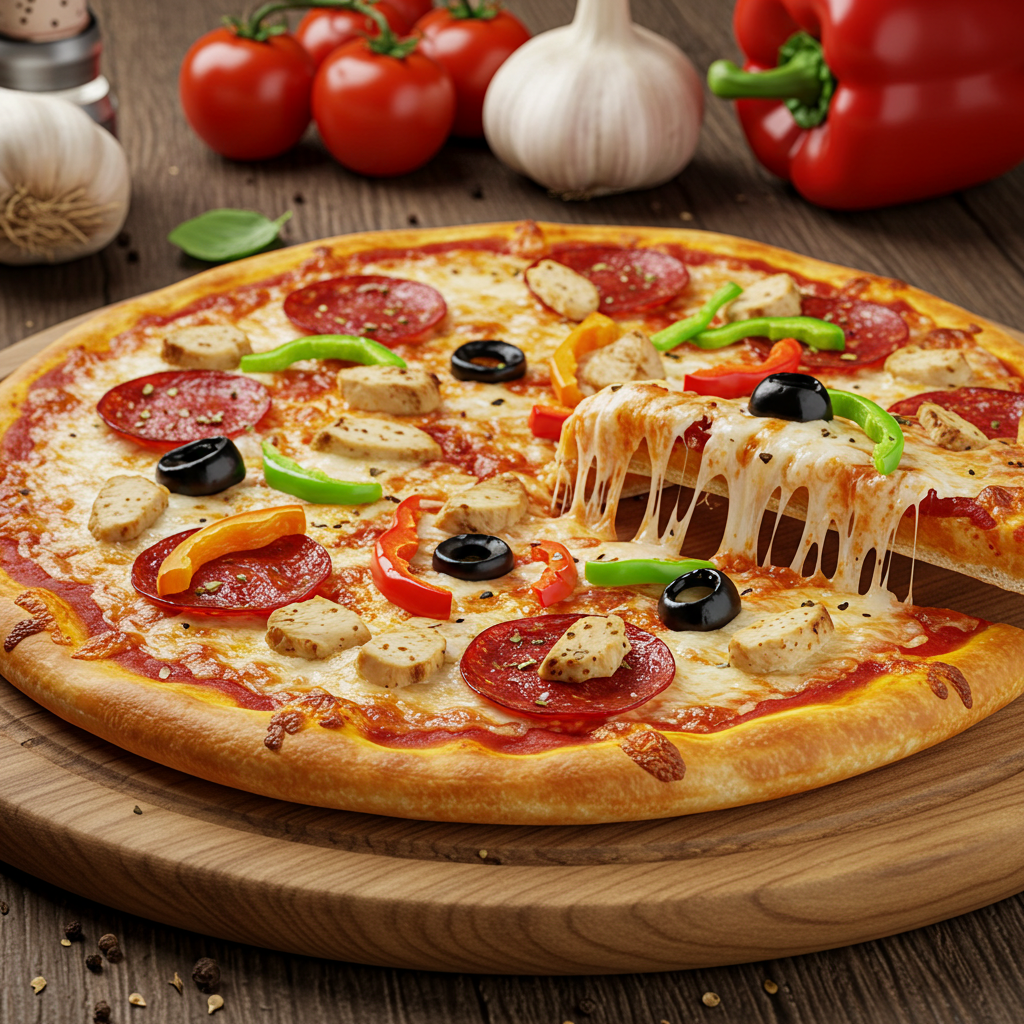
Growth of Halal Pizza in Non-Muslim Regions
The rise of halal pizza availability reflects bigger social changes:
- More religious diversity in Western countries
- Growing awareness of different dietary needs
- Rising demand for food transparency
- Businesses recognizing the value of serving Muslim customers
Market research shows halal pizza sales growing 15% each year in non-Muslim countries. This growth rate beats the overall pizza industry’s growth of 5-7%. Smart business owners see this trend as an opportunity to serve new customers.
Community Gathering Aspects
Pizza’s shareable nature makes it perfect for community building:
- Halal pizzerias often become meeting spots for local Muslims
- Family-friendly settings support traditions of eating together
- Pizza’s customizable nature fits diverse taste preferences
- Halal certification allows Muslims to join mainstream social activities
Many Muslim families appreciate having a certified halal pizza option for birthday parties, team celebrations, and casual get-togethers. This helps children and teens feel included in social events where pizza is the standard food choice.
Incorporation into Celebrations and Events
Halal pizza has changed event catering options:
- School events and children’s parties can now include all students
- Work functions offer halal options for diverse employees
- Community iftars during Ramadan sometimes feature pizza
- Cultural fusion celebrations mix halal pizza with traditional foods
This flexibility makes event planning easier and more inclusive. Hosts can order halal-certified pizza alongside other options to make sure all guests have something they can enjoy.
Business Opportunities in Halal Pizza
Growth of the Halal Pizza Market
The halal pizza segment offers major business potential:
- Global halal food market exceeds $1.9 trillion yearly
- Halal pizza makes up about $15 billion of this market
- Growth rates of 10-15% expected yearly through 2030
- Strong growth in Europe, North America, and Southeast Asia
- Online ordering and delivery apps speed up market growth
This expanding market attracts both new entrepreneurs and established pizza chains. The numbers show that halal pizza businesses have room to grow for many years to come.
Success Stories of Halal Pizzerias
Several businesses show how successful halal pizza ventures can be:
- Mamo’s Pizzeria (London): Grew from one location to six restaurants in four years
- Halal Guys Pizza (New York): Successfully added pizza to their popular food cart business
- PizzaExpress (UAE): Changed their whole menu to halal standards and grew market share by 30%
- Chicago Halal Pizza (Illinois): Built a thriving business serving an overlooked community
These success stories prove that halal pizza can work as a business model in many different markets. The key factor is authentic compliance with halal standards while maintaining great taste.
Marketing Strategies for Halal Pizza Businesses
Successful halal pizza companies use smart marketing approaches:
- Clear display of halal certification
- Digital marketing aimed at Muslim consumers
- Community involvement through sponsorship of Muslim events
- Open information about ingredient sources
- Fusion menu items that appeal to diverse customers
- Social media showing inclusive dining experiences
The most successful businesses promote their halal status with pride. They see it as a quality mark rather than just a religious requirement.
Challenges and Solutions
Businesses entering the halal pizza market face several challenges:
- Challenge: Higher costs for certified ingredients Solution: Build relationships with suppliers and adjust menu pricing
- Challenge: Cross-contamination concerns in shared kitchens Solution: Create dedicated prep areas and train staff properly
- Challenge: Understanding different certification standards Solution: Work with respected certification groups and communicate clearly
- Challenge: Balancing authentic pizza taste with halal requirements Solution: Develop creative recipes and find quality ingredient substitutes
Smart business owners plan for these challenges from the start. With good planning, a halal pizzeria can overcome these obstacles and build a loyal customer base.
FAQs About Halal Pizza
What is a halal pizza?
Halal pizza follows Islamic dietary laws. It contains no pork or pork products, uses meat from animals slaughtered according to Islamic guidelines, has no alcohol in any ingredients, and avoids cross-contamination with non-halal foods. The cheese must use halal-certified rennet or plant-based alternatives. This allows Muslims to enjoy pizza while following their religious dietary rules.
Is Quick halal in Morocco?
Yes, Quick restaurants in Morocco typically serve halal food. Morocco has a mostly Muslim population, so major food chains follow halal requirements. Quick, the European fast-food chain in Morocco, prepares food according to halal standards and uses halal-certified meat. We still recommend checking with specific locations, as policies might change.
Is Domino’s halal or haram?
Domino’s halal status varies by country and even by individual store. In countries with large Muslim populations (like Malaysia, Saudi Arabia, UAE), Domino’s runs fully halal restaurants. In the UK, some Domino’s locations offer halal chicken. In the US and Canada, most Domino’s don’t offer halal-certified products. Always call your local Domino’s to check their current halal status.
Discover Viral Recipes on TikTok with ToDaRecipes
Looking for the latest food trends and recipe hacks? TikTok has become a hotspot for viral cooking content that’s fun, fast, and easy to follow. At ToDaRecipes, we love sharing the best food ideas—and TikTok is one of our go-to sources for creative kitchen inspiration.
From one-pan meals to air fryer favorites, TikTok is full of quick videos that make cooking exciting again. These short clips often introduce clever techniques or surprising flavor combinations that anyone can try at home.
👉 Explore trending recipes on TikTok and get inspired to try something new today!
Don’t forget to follow ToDaRecipes on TikTok for our own recipe demos and behind-the-scenes kitchen tips. Let’s cook up something delicious together!


